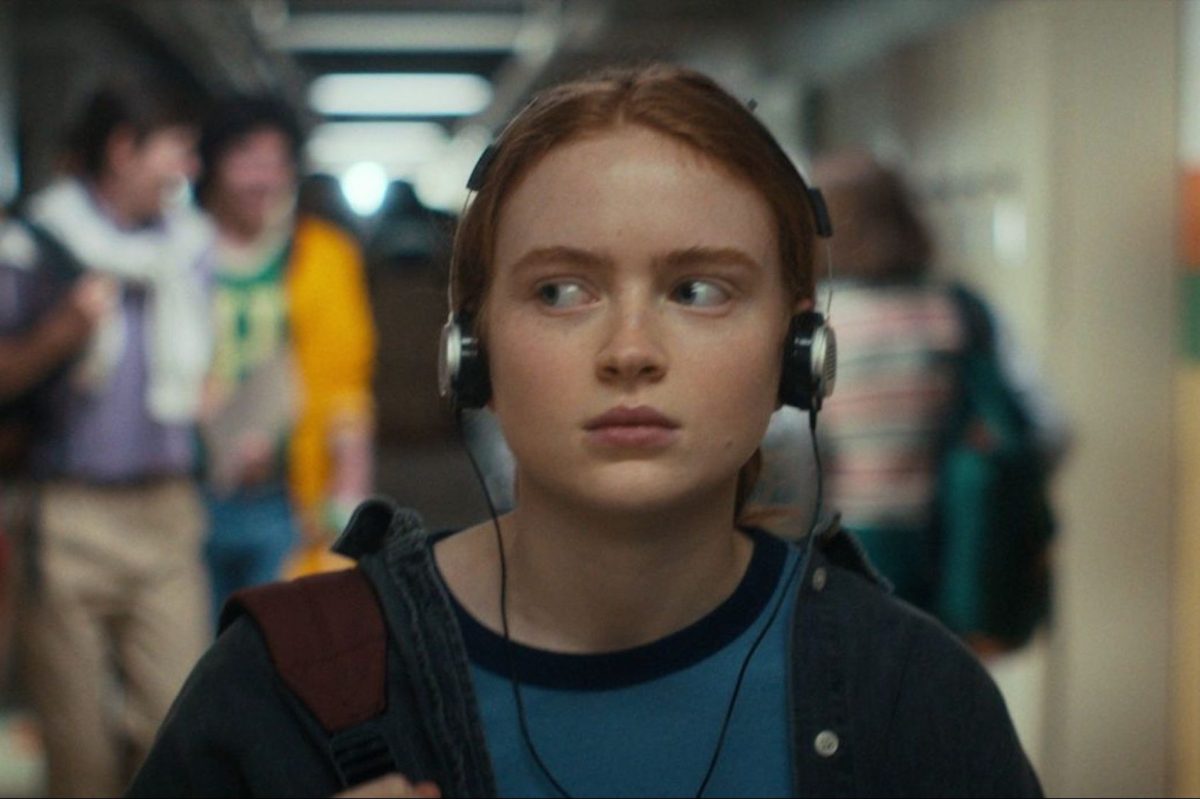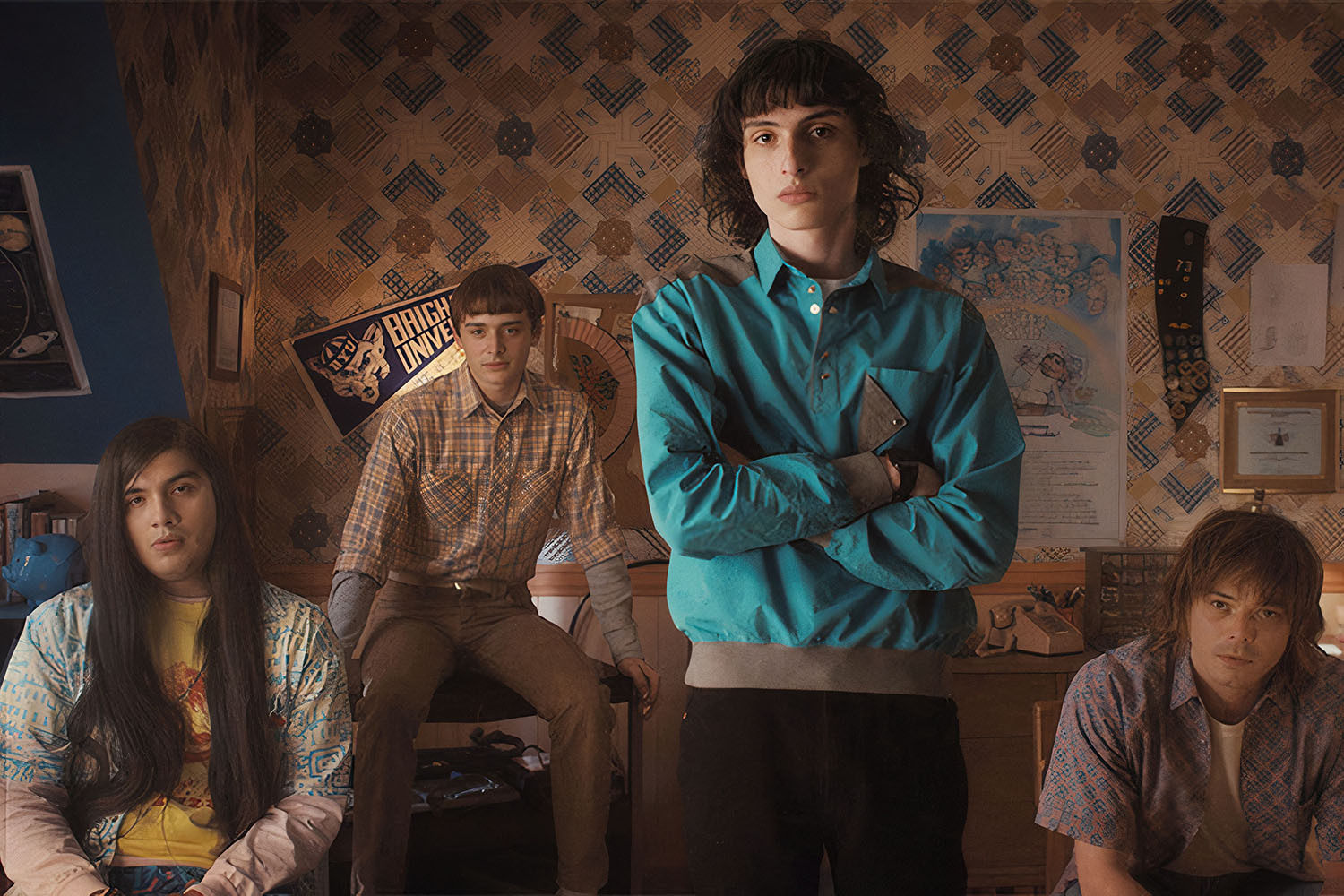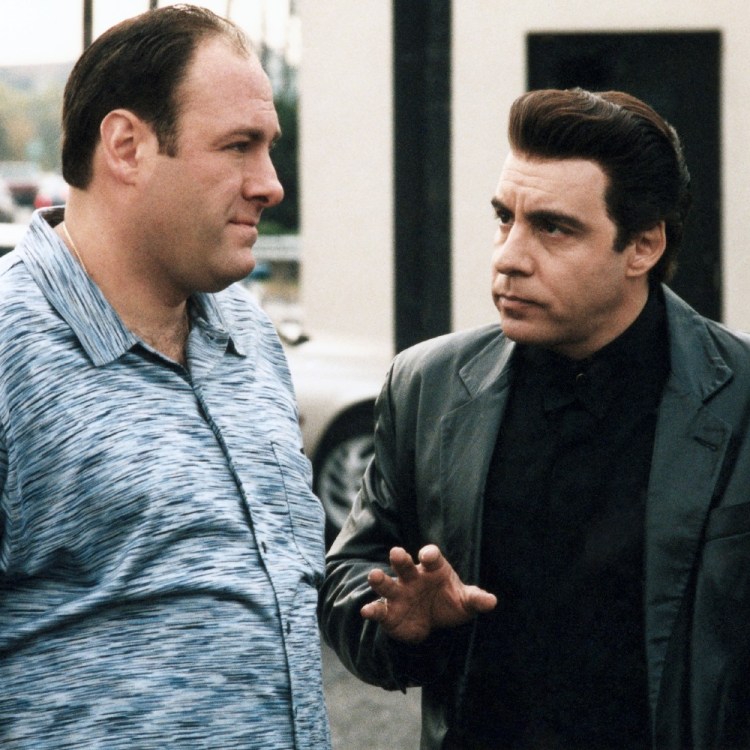We all know that Stranger Things is fantasy. There is no Upside Down full of Dungeons & Dragons creatures hellbent on flaying minds or — as far as we know, at least — no secret government agency devoted to training children with telekinetic powers. But as anyone who’s already burned through the first batch of episodes from Season 4 knows, this season the show uses its supernatural elements to address real-world issues like trauma, mental illness and most fascinatingly, the healing power of music.
This season’s main villain is Vecna, a creepy demon who possesses the teens of Hawkins, Indiana and taunts them with visions of their past traumas and humiliations before killing them while they’re under his spell, Freddy Krueger-style. (In fact, the homage to that classic horror villain is solidified by a memorable cameo this season from Robert Englund, who portrayed Krueger in the Nightmare on Elm Street movies, as Victor Creel, one of Vecna’s oldest surviving victims.) A brief trip to the psychiatric hospital where Creel is now institutionalized ultimately reveals that the way to escape Vecna’s grasp and return to reality is to listen to your favorite song.
The scene in episode 4 in which Max escapes Vecna by listening to Kate Bush’s “Running Up That Hill” has struck a chord with fans, to the point that the 1985 song is currently on pace to hit No. 1 this week, giving Bush her first chart-topping single since 1978’s “Wuthering Heights.” Part of that is, of course, because it’s a great song being exposed to a new generation, but we have to assume that a good chunk of the people downloading and streaming it lately are doing so because they were moved by the way music can help us cope with grief, stress, cognitive issues and a slew of mental illnesses ranging from depression and bipolar disorder to schizophrenia and autism.
As Erik Gundel, a board-certified music and creative arts therapist based in New York City puts it, “Music is one of the most emotionally universal modes of communication available to humans. In therapy, it provides a vessel for emotional exploration and a safe framework to soothe deeply felt trauma.” But what how does music therapy work, and what does it actually entail? We caught up with Gundel recently to find out.
InsideHook: In one episode of Stranger Things, music is used as this nice metaphor for something that can help us cope with trauma, and they mention how music can access parts of the brain that words can’t. I know I’ve heard a lot about Alzheimer’s patients or dementia patients who will recall their favorite song or be able to remember the lyrics to it. So I’m wondering if you could just talk a little bit about that phenomenon and whether music has the power to tether people to reality when they maybe are having difficulties being lucid?
Erik Gundel: Definitely, like you mentioned, with dementia and Alzheimer’s, elderly people dealing with those things. Yeah, it’s really powerful. I worked at a nursing home for a year, and I still see some elderly clients on a more private basis, and yeah, it’s definitely the most visibly transformational work I’ve been a part of, where you have people who are more or less nonverbal or disengaged from their environment and socialization and that type of thing, and then if you play a piece of music that they experienced when they were younger or have a particular personal connection to, they can really just physically come to life, even saying words and melodies when they would otherwise be more disengaged. So, yeah, I don’t come at music therapy from a neurological standpoint, really, but I think it’s pretty obvious to me that music can engage parts of the brain that typical communication language cannot. And yeah, in regards to trauma, that totally makes sense to me. I think trauma can be difficult to engage with directly due to the potential of re-traumatization. There’s a concept called titration, where you gently dip in and out of traumatic memories and experiences by way of music, where you might not be directly talking about the traumatic experience but coming at it through sound and art, and yeah, it can be a more gentle way to do it, while also healing the trauma as well.
I know that music therapy can obviously take many different forms, whether it’s listening or playing, or writing music. What would you say is the most common one, or the one that people most frequently seek out?
When I say I’m a music therapist, people do often say, “Oh, music is my therapy,” and they usually mean music listening, or they have the idea of like sound baths as like a total, receptive relaxation and sound — the physical properties of sound, like the vibration, how that can be a healing experience. Yeah, it’s hard to say what the most common one is. I would say, probably as a clinician, probably playing songs with people that they enjoy or that they like and personalizing the musical experience so that they can participate. And whether you’re working on expressive language or specific musical goals that have to do with relating if you want someone to have greater social awareness through rhythm or sometimes melody, pitch, that type of thing, that you are using the music to focus on those goals so just having songs that people know and just the fundamental social experience of sharing in a piece of music, that is often how I experience music therapy. But yeah, as you say, it can be tons of different things.
How much does a patient or a client’s personal music tastes factor into how you go about treating them? Are you primarily using songs and styles of music that they already love and are familiar with, or do you introduce them to music that you think could be beneficial to them?
Personally, I try to go as much as possible with music that they enjoy listening and playing. I’m still learning and progressing and figuring out how I wanna do music therapy, but what I am most interested in is improvisation and how that can express internal struggles and emotional blockages and that type of thing. So in that sense, improvisation is entirely in the moment, it’s entirely personalized. I am experiencing my own reflection on the music, and so in that sense, yeah, it is entirely personalized. There are some instances in which you could say, “Oh, what you’re talking about or what this song brought out reminds me of a piece of music, and here’s what it sounds like.” Or maybe it’s a popular song that they probably are aware of, just by being around, they might enjoy it. But I don’t find myself doing that so often. I like to go from what the client brings to the table.
What would you say is the most common reason that people seek out music therapy? I know obviously it’s effective in coping and dealing with all sorts of different issues. What would you say is the one that you see people seeking out music therapy for most frequently?
I think it’s probably people who have an awareness of or maybe have experienced talk therapy, and it hasn’t been something that they found super beneficial, and they wanna try to come at what they wanna work on from a different angle. Usually, they bring like, “Oh, I love music. I’ve always found music helpful and calming, and I want to try to use that as part of my therapy.” Yeah, and I think when it comes to younger people, kids and adolescents who might be dealing with developmental delays or they’re on the autism spectrum, that typical talk therapy just is not on the table. There needs to be an alternative mode of expression for them, and music is typically very useful in engaging with people where language and talking is not as easy. It can be a great way to engage people.
What would you say is the most common misconception about music therapy?
Yeah, this gets at the receptive sound-bath response that people have, where I think some people think that it’s something that can be done to them, like, “Please music-therapy me.” Whereas, just like talk therapy, you have to be invested in it and you have to work at it. At all levels and whatever the goals are, there needs to be some mutual engagement in what the goals are, and that it can be receptive but that in general, there needs to be engagement and participation. I would say that’s the main one.
How do you determine what sort of music therapy is going to be most beneficial to a client? Like when they first come to you and they say, “I’m looking to try music therapy,” what’s that process like of determining what their therapy is going to look like?
That’s a tough one. I think sometimes it is apparent, and sometimes it takes a while to figure out. When someone comes to me about music therapy, usually, they have some sort of personal connection, and that’s where you start with someone. I’m trying to think of the clients I have now. Someone went to a performing-arts high school, and it ruined their relationship with music in a way where it soured it or turned it competitive. That’s a type of trauma, I would say, is damaging someone’s creativity, so it’s trying to re-engage that part of themselves gently and allowing for an environment where they feel comfortable singing again. Another person wants to use music to remember a parent who passed away, so you might listen to significant music, maybe play some of it and try to process grief, but sometimes people are a little more vague about what music means to them. They have a musical connection of some kind, but yeah, that might be where improvisation comes in, if they’re comfortable with that. You can see how they’re relating, how they relate with me and say like, “Oh, there’s some sort of dynamic here where I noticed you’re not playing loudly” — dynamics or tempo or how they can match up with me in an improvisation, that can maybe shed light on broader issues they might be facing in life about self-esteem or that type of thing, and then you might try to use music going forward to help process those challenges. But yeah, it can be any number of things, so it can take some time to sort out.
What would you say to someone who is maybe considering seeking music therapy for the first time but unsure of really where to begin?
I would say go for it. To go back to the previous question, yeah, get ready to participate and feel all the sorts of… I don’t wanna say, “Get ready to feel scared,” but yeah, “Get ready to be vulnerable in music and trust that the music therapist will be there to help you, and that you are there to process and heal, and that that’s what the therapist is there for.” I think when people think of music, they think of performance, maybe; there could be performance anxiety, and yeah, just come prepared to share what music means to you and explore ways to use it, and I think it will require people to maybe just learn new ways of using music. As a clinician, a lot of school and training was how to reprogram my thinking about music, which was very hard. So, that is a challenge, is get ready to be open-minded when it comes to music, but yeah, they should definitely look into it if it’s the right thing for them.
What initially inspired you to become a music therapist?
I mean, I studied music for many years on piano and guitar, and I moved to New York wanting to do like a music performance career. I just gradually figured out that it wasn’t really right for me, or I didn’t see myself in that world of touring and so I started to look around, see what else one can do with music. I looked into composing for TV and film, that type of thing, but yeah, I think a couple volunteer things I did were helpful. I did what I would call now “environmental music therapy” in a hospital, which is just code for playing music in the hallway, playing guitar while people walk around, and that was fun, and I was like, “Oh, that’s very cool, to just meld music with a medical environment.” And I looked into it some more. I did a volunteer thing at NYU. They have a music therapy center there. There’s a music therapy program there, and then there is a music therapy center where real-life clients come, and there’s professional music therapists there and then a bunch of people in training. And as part of that music therapy technique — it’s called Nordoff Robbins, named after the two fellows who developed it — they film every session and they watch it afterwards, student and teacher, basically, and analyze what happened and how to work on things. So they have like a little booth where you hide, and they have drapes, and you just film everything, ’cause someone needs to be zooming in on things or focusing on different parts of the room. So that was really cool ’cause I just got to watch a bunch of music therapy sessions, the same people each week, so I could see, “Oh, they’re going back to this.” Yeah, one was a group of kids, and then another, it was a guy who had had a stroke and they were working on re-engaging language. So it was cool to see two totally different client types and how music was used. So I was like, “Oh, this is cool, I could see myself doing this,” so I went back to school for it. I still play in a band, and I like to record music, but it feels like a different part of my life.
This article appeared in an InsideHook newsletter. Sign up for free to get more on travel, wellness, style, drinking, and culture.
























